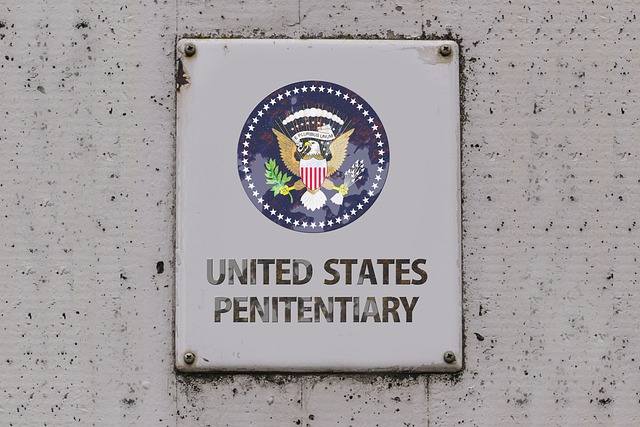Global Immigration and DUI Perspectives expose disparities within youth justice systems due to cultural, language, and financial barriers, disproportionately affecting young immigrants. These challenges impact understanding of laws like DUI and lead to unfair outcomes. To address this, juvenile justice systems must adopt culturally sensitive approaches, including multilingual aid, community education, and pro bono services. Successful reforms in Canada and the U.S. demonstrate the effectiveness of restorative justice practices tailored to individual needs, resulting in reduced recidivism. This holistic approach is crucial for ensuring fairness and equity within youth justice, fostering acceptance across diverse communities globally.
“In the global pursuit of justice, ensuring fair treatment for youth is an intricate yet vital task. This article explores the multifaceted issue through a comprehensive lens, examining the international landscape of juvenile justice. We delve into the impact of immigration on young individuals, shedding light on unique challenges, especially in diverse legal systems. With a specific focus on Global Immigration and DUI Perspectives, we analyze the consequences of driving under influence for minors worldwide. Additionally, cultural sensitivity is explored as a key strategy to enhance equitable legal representation.”
- Understanding Youth Justice: A Global Perspective on Fair Treatment
- Immigration and Its Impact: Unveiling the Challenges for Young Individuals
- DUI (Driving Under Influence) and its Specific Effects on Minors
- Cultural Sensitivity in Juvenile Justice Systems Across Borders
- Promoting Equality: Strategies to Ensure Fair Legal Representation
- Case Studies: Success Stories of Youth-Centric Justice Reforms
Understanding Youth Justice: A Global Perspective on Fair Treatment

Youth Justice, when viewed through a global lens, becomes a complex tapestry woven with varying threads of cultural, social, and legal perspectives. In many countries, especially those with diverse populations, understanding fair treatment in the justice system requires considering the unique challenges faced by youth from different backgrounds, including those with Global Immigration and DUI (Driving Under the Influence) histories. These perspectives often highlight disparities in access to resources, language barriers, and cultural misunderstandings that can significantly impact outcomes within the juvenile justice framework.
The global immigration perspective brings attention to the fact that many young people may be non-native speakers, facing difficulties in communicating with authorities and understanding their rights. Moreover, those involved in DUI cases might struggle with cultural norms surrounding alcohol consumption, leading to differing interpretations of legal boundaries. Navigating these complexities requires a nuanced approach, ensuring that justice is not only served but also perceived as fair and equitable by all youth, regardless of their immigration status or cultural background.
Immigration and Its Impact: Unveiling the Challenges for Young Individuals

Immigration, a global phenomenon with profound impacts, presents unique challenges for young individuals, especially in the context of justice and fairness. When young immigrants navigate their new environments, they often face complex barriers that can shape their experiences and outcomes. The interaction between global immigration trends and youth justice systems demands careful consideration, particularly when examining issues like driving under the influence (DUI).
Young immigrants, arriving from diverse cultural backgrounds, may struggle with understanding and adhering to local laws, including those related to DUI, due to language barriers and differing legal frameworks. This can lead to disparities in enforcement and sentencing, as well as challenges in accessing support systems that cater to their specific needs. The Global Immigration and DUI Perspectives highlight the need for culturally sensitive approaches and tailored interventions to ensure fair treatment within youth justice systems.
DUI (Driving Under Influence) and its Specific Effects on Minors

DUI, or Driving Under the Influence, is a critical issue that impacts minors significantly, especially when considered through a global immigration lens. When an individual operates a vehicle while impaired by alcohol or drugs, the consequences for young people can be severe and long-lasting. Minors involved in DUI incidents often face unique challenges due to their age, with potential implications for their future opportunities, education, and overall well-being.
In many countries, global immigration perspectives highlight that underage individuals caught driving under the influence may face stricter penalties compared to adult offenders. This is primarily due to the vulnerable nature of minors and the need to deter potential copycat behavior among their peers. Such cases often attract heightened media attention, putting a spotlight on the issue of youth justice and fair treatment within the legal system.
Cultural Sensitivity in Juvenile Justice Systems Across Borders

In today’s interconnected world, understanding cultural sensitivity in juvenile justice systems has become imperative, especially with the global immigration perspective in mind. Many young people involved in the justice system are from diverse backgrounds, bringing unique cultural experiences and perspectives. This is particularly relevant when considering issues like DUI (Driving Under the Influence) cases, where cultural nuances can significantly impact how these incidents are perceived and handled. For instance, a youth from a community with strict alcohol consumption taboos might face challenges in defending themselves against a DUI charge due to misunderstandings or lack of awareness of their cultural context.
Addressing this requires a holistic approach where juvenile justice systems across borders adopt global immigration perspectives, ensuring that cultural sensitivity is at the core of every decision. This involves training professionals on cross-cultural competency, promoting cultural awareness among staff and judges, and developing guidelines that consider the impact of cultural differences in legal proceedings. By embracing these practices, we can foster more equitable outcomes for all young people, regardless of their background, ensuring that justice is not only served but also understood and accepted within diverse communities.
Promoting Equality: Strategies to Ensure Fair Legal Representation

Promoting equality in youth justice requires strategic efforts to ensure fair legal representation, especially considering the unique challenges faced by immigrants and those accused of DUI (Driving Under the Influence). Global Immigration and DUI Perspectives highlight disparities within the current legal system. Many young people from diverse backgrounds face barriers to accessing quality legal counsel due to language constraints, cultural differences, and financial constraints.
To address these issues, innovative strategies such as multilingual legal aid services, community-based legal education programs, and pro bono initiatives are crucial. These approaches aim to break down communication gaps and empower young individuals to understand their rights fully. By implementing these strategies, the youth justice system can move towards a more equitable landscape, ensuring that all young people, regardless of their background or charges, receive fair treatment under the law.
Case Studies: Success Stories of Youth-Centric Justice Reforms

In recent years, various countries have implemented youth-centric justice reforms that focus on rehabilitation, reintegration, and fair treatment, leading to notable success stories in the global immigration and DUI (Driving Under the Influence) perspectives. These reforms challenge traditional punitive measures by acknowledging the unique needs and potential of young offenders. For instance, some nations have introduced specialized juvenile courts that prioritize restorative justice practices, such as mediation and community service, over incarceration.
Case studies from these jurisdictions demonstrate reduced recidivism rates among youth participants. For example, a study in Canada showed that young people involved in restorative justice programs were less likely to reoffend compared to those in traditional criminal justice settings. Similarly, in the United States, youth-focused DUI programs have proven effective in lowering alcohol-related driving offenses among minors by combining education, counseling, and community support. These success stories offer valuable insights for other regions seeking to reform their juvenile justice systems, emphasizing the importance of tailored interventions that address the root causes of delinquency while fostering positive growth.
In conclusion, addressing youth justice involves a multifaceted approach that considers global perspectives on fair treatment, navigates complex issues like immigration and DUI, and prioritises cultural sensitivity. By promoting equality through equitable legal representation, we can learn from successful reforms worldwide to create juvenile justice systems that truly serve the best interests of young people, especially in light of their unique challenges such as global immigration and DUI perspectives. These efforts are crucial steps towards a more just and compassionate future for our youth.






